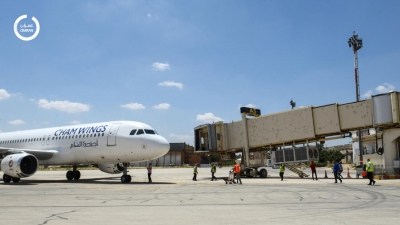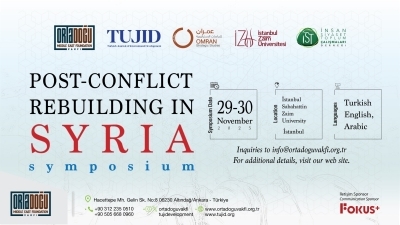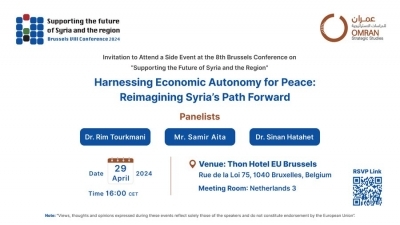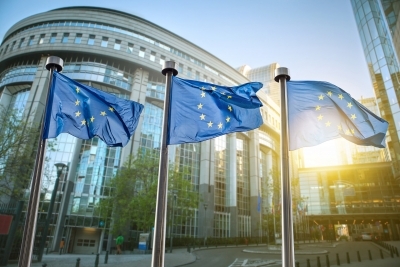General Summary
This report provides an overview of the key events in Syria during the month of October 2023, focusing on political, security, and economic developments. It examines the developments at different levels.
- Politically, the political scene in Syria was affected by the Israeli aggression on Gaza, and the residents of as-Suwayda continued their weekly demonstration on Fridays, demanding political transition and reforms.
- Militarily, A drone strike hit Homs' military college, killing /123/, as reported by regime media. In retaliation, the regime bombed Idlib and Aleppo's outskirts. Concurrently, Turkey launched airstrikes on Syrian Democratic Forces “SDF” leaders following a PKK-claimed September attack in Ankara. Amidst Israeli strikes on Gaza, US bases in Eastern Syria saw over /18/ Iranian-backed militia attacks, with Israel also targeting Syrian airports in Aleppo and Damascus.
- Economically, Syria's regime revealed a 2024 budget 114% higher than the last, signaling ongoing deficit spending and rising poverty. Moves to float the Syrian pound and cut private sector support were marked by currency devaluation and updated bi-weekly fuel prices.
The Israeli-Gaza Conflict Impacts on Syria and the Homs Military Academy Explosion's Aftermath
In the Regime Held-Areas
The escalating tensions in Gaza have markedly impacted regional dynamics, prompting:
- Over /30/ attacks by Iranian-backed militias on US bases across Syria and Iraq.
- 2Increase in Israeli airstrikes targeting Syrian Regime facilities.
Key sites such as the US's al-Tanf base, al-Omar oil field, and the al-Shadadi base have been subjected to intensified UAV and rocket attacks by these militias. Additionally, the Koniko gas pipeline, the American base in “Rubarba” near al-Malikiyah, and the “Kharab” base have sustained damage from these attacks.
Beginning October 7th, Israel escalated its military actions against Syrian Regime and Iranian-backed militia targets, executing over nine strikes in different areas. Significantly, Israel targeted Aleppo International Airport four times, Damascus International Airport twice, and four military locations in Daraa. These strikes in October represent a strategic shift, aiming to:
- Preventing Iranian Influence: Israel's efforts to prevent Iranian militias from strengthening their positions in Southern Syria, especially following the events in Gaza, suggest a proactive approach to counter what it perceives as a growing Iranian influence in the region. This is in line with Israel's long-standing policy of countering Iranian expansion and influence in neighboring countries.
- Demonstrating Military Readiness and Capability: The nature of these strikes, notably their scope and precision, serves as a demonstration of Israel's military readiness and capability to operate on various fronts. This could be intended as a deterrent to potential aggressors and a show of strength to both regional and international audiences.
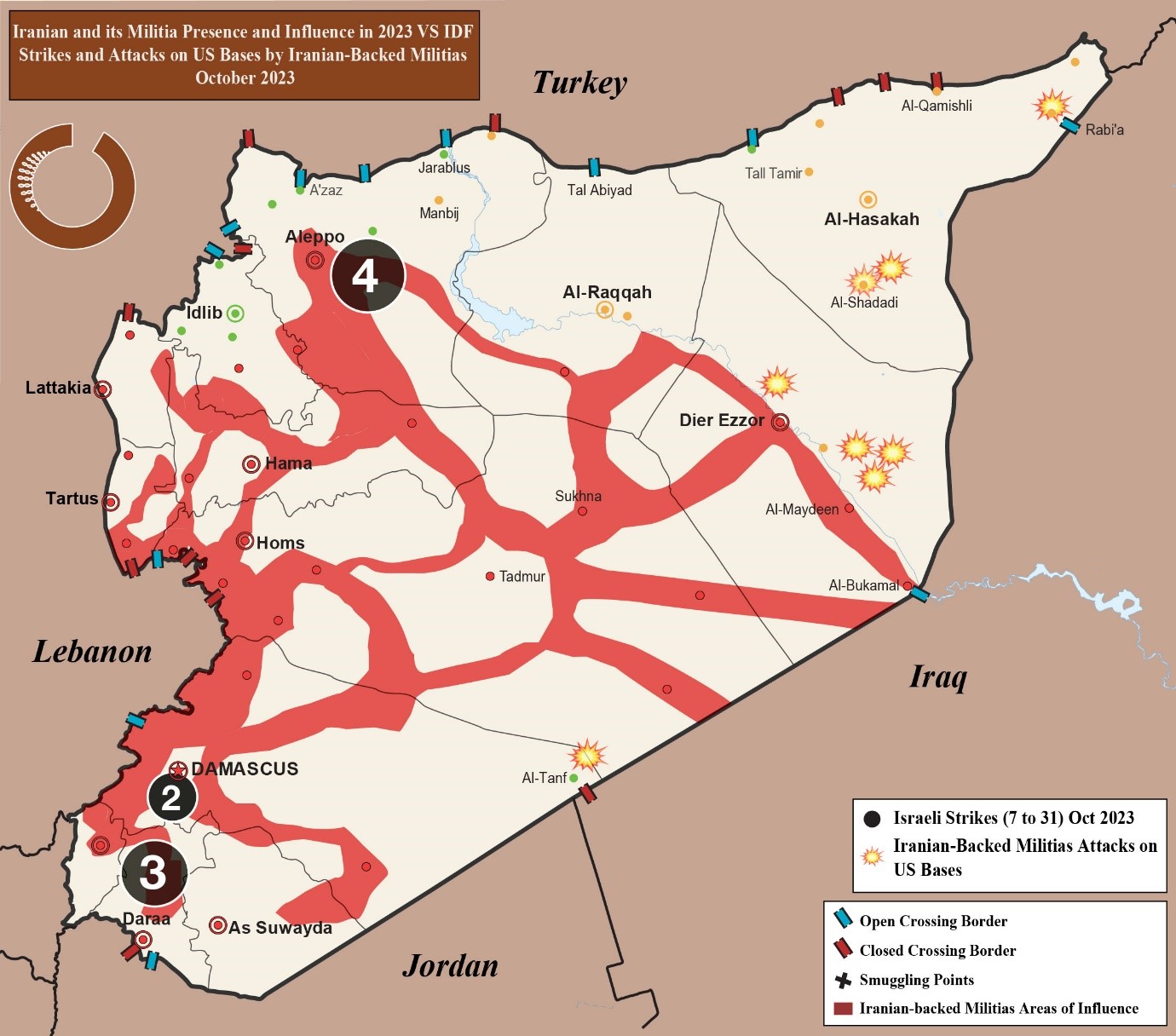
In another development, the military college in Homs city was attacked by unidentified drones, according to regime media, resulting in the deaths of dozens, including officers. This attack is notable for several reasons:
- Ten officers were killed, including two with the rank of brigadier.
- The human toll was significant, with /123/ people killed.
- This attack is viewed as a major security breach, as it targeted a location known for its high level of security.
The attack on the military college led the regime, with Russian support, to launch airstrikes and heavy artillery bombardments on over /30/ locations in Northwest Syria, blaming what they labeled as “Terrorist Organizations” for the attack. This resulted in the deaths and injuries of dozens, including /14/ children, /12/ women, and /38/ men.The regime aimed to use this incident to:
- Strengthen its narrative against revolutionary forces and the opposition.
- Advance its military position on the ground.
- Disrupt the stagnant political process.
- Gain sympathy from Arab and foreign countries to support the regime and condemn the attackers.
- Distract Arab countries from their initiative demanding concessions from the regime on various issues.
In the SDF Held-Areas
Following the “PKK's” claim of responsibility for the Ankara attack near the Turkish Ministry of Interior on the 1st of October 2023, the Turkish Armed Forces launched a series of airstrikes and security operations targeting “SDF”, military bases, and vital facilities in northeast Syria, the technical aspect of this operation signifies a shift in the Turkish military strategy and goals:
- Expanding the geographical scope of targets to locations about 70 km from the Turkish border.
- Targeting infrastructure like oil facilities and electricity generation and distribution stations.
- Striking weapon depots, training camps, and buildings of civil institutions affiliated with the Autonomous Administration.
- Targeting leaders and members of the “Asayish” internal security forces.
- Set new conflict and engagement rules and pressure the US to reconsider its alliance with the SDF in northeast Syria, considering Turkey's security concerns.
Echoes of Gaza in Syria, Civil Unrest in As-Suwayda, and Deir Ezzor's Quest for Calm
The Israeli aggression on Gaza affected the political environment in the region and had a direct impact on the Syrian file. During a UN Security Council session, U.S. Ambassador “Linda Thomas-Greenfield” noted that the events in Gaza are:
- Extension of Iran's security and military increasing role and Hezbollah's militia in Syria.
- Resolving the Gaza and Syria situations starts with stopping the expansion of these militias.
Syrian National Coalition “SNC”
The French FM “Catherine Colonna” canceled a meeting with the “SNC” delegation, which had traveled to Paris to urge French officials to hold a Security Council session and take necessary actions to stop the Regime military escalation in Northwest Syria.
The “SNC” met with Turkish FM “Hakan Fidan”, focusing primarily on economic demands and the need to empower the Syrian Interim Government to provide basic services to the people.
Syrian Regime
The Saudi FM contacted the Syrian regime's FM to discuss regional developments and bilateral relations. “Bashar al-Assad” also met with the Iranian FM in Damascus to discuss the Israeli aggression on Gaza. The regime appointed an ambassador to Tunisia, aiming to enhance its effectiveness in regional and international forums.
In the Southern region, at As-Suwayda Governorate:
- Civilians continued to protest against the regime's indifferent approach and its refusal to make concessions, despite being unable to provide services and funds to the province.
- The Ministry of Local Administration offered a (Gant) of /300/ million SYP, equivalent to about /24,000/ USD.
- Tribes in Daraa and as-Suwayda formed a unified council to unite the efforts of the tribes in both governorates, enhance communication, resolve disputes, and prevent external attempts to create a similar council.
Syrian Democratic Forces
The Autonomous Administration in Northeast Syria and the Deir Ezzor Civil Council held a conference to involve the people of Deir Ezzor in decision-making and address public discontent in the governorate. The conference included various community segments, administration employees, and local leaders from Deir Ezzor. The conference concluded with recommendations to:
- Enable real participation of the locals.
- Build a robust administrative structure based on genuine competencies.
- Strengthen the military security force.
Economic Crisis Deepens: Struggling Against Corruption and Insignificant Reforms
In the Regime Held-Areas
The Supreme Council for Economic and Social Planning has set the 2024 budget for Syria at /35,500/ billion SYP. This is 114% more than last year but 27% less than in 2022 when converted to USD. This budget is unlikely to help the economy grow and will probably cause more inflation and reduce the value of the Syrian lira.
The Central Bank has set the official exchange rate of the Syrian lira to the USD at /12,500/ SYP, close to the black-market rate /13,900/ SYP. Since the start of the year, the Central Bank was and still trying to close the gap between the official and the black-market rates, to encourage people to use the official rate to help increase foreign currency reserves.
Despite the rising cost of living, the Regime government kept on exporting a lot of vegetables and fruits, mainly to Saudi Arabia. This has led to higher prices locally because of reduced supply and increased costs for things like fuel, seeds, transport, and labor. This approach shows a lack of concern for the citizens' living standards and seems to favor the interests of businesspeople and profit over everything else.
In the SDF Held-Areas
Attempts by the administration to regulate the markets and money movements have met with objections from traders. After the Autonomous Administration issued a circular reminding of the necessity to obtain the necessary licenses to engage in currency exchange and financial remittances, set minimum capital clauses, and deposit money with the Monetary Office
The Corruption in within the Autonomous Administration continues to undermine the development of the region and puts pressure on the livelihood of the population, notable incidents:
- Dozens of farmers have complained about not receiving their dues for the crops supplied about 3 months ago.
- Administration employees have complained about delayed salaries due to the alleged lack of budget amidst the difficult economic conditions experienced by the residents of the region in general.
- Teachers complained about having to pay more than 30% of their salary to pay for electricity (amperes), water, and the internet.
- The wages for farming have risen from /7,000/ SYP to /28,000/ SYP per dunum, excluding other expenses, turning agricultural activity into a losing process. This leads to farmers abandoning their agricultural lands.
- RCELL company increased the prices of internet packages by about 400%. The company enjoys broad support from the “Autonomous Administration”.
In the Opposition Held-Areas
Idlib witnessed the opening of its first textile factory, this development might inspire other entrepreneurs to establish similar factories in the area. Additionally, the city hosted the (Idlib Markets 2023) exhibition, featuring numerous new companies and stores. This event is significant for several reasons:
- It allows direct sales to consumers, making essential items more affordable for locals.
- It fosters healthy competition among businesses, leading to discounts ranging from 30% to 40%.
In North Aleppo, the Syrian-Turkish Electricity Company has reduced electricity rates to /2.77/ TL for residential use and /3.17/ TL for industrial and commercial use in Jarablus, Afrin, Azaz, and surrounding regions.
Efforts to revive the economy continue, with local councils and organizations collaborating on infrastructure projects like road repairs, water, and sewage pipe installations, and extending electricity networks. To regulate local affairs, several directives have been issued:
- Health organizations in Jarablus must get official approval before announcing job openings on social media.
- Private educational institutions must secure licenses from the Directorate of Education.
However, the agricultural sector in Ras al-Ain is experiencing difficulties. The interim government is grappling with several issues:
- Preventing large local traders from pressuring cotton farmers into selling their crops at prices that are too low to cover the costs of production, resulting in financial losses.
- The challenge of stabilizing cotton prices, which currently vary between /500/ and /550/ USD per ton, a significant drop from the previous year's range of /750/ to /800/ USD.
- The issue of low wages for agricultural workers, which remain capped at a maximum of two dollars per day.

